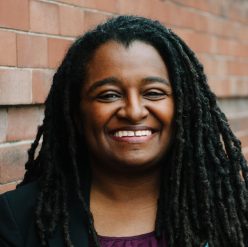I’m sure it goes without saying that as a queer North Carolinian who is committed to social justice, I am against HB2 for all the reasons that have been so well articulated by my movement family these last several weeks. Rather than rehashing the whys and hows, I want to dig a little bit more into the many varied reactions to this legislation and the consequences of those actions on the state of NC and Durham in particular. Specifically, I want to talk about boycotts.
I do not oppose boycotts of NC in response to HB2.
This is an awkward position to take. I’m now an elected leader of a city in North Carolina that is certainly going to experience negative impacts as a result of these boycotts. However, I’ve supported many, many boycotts in the past, of companies, states, and an entire nation, and I won’t be a hypocrite by rejecting this tool just because this time it’s directed at me (and for good reason). Boycotts are a highly effective nonviolent tool of political and social resistance, and in this case they are doing exactly what they were designed for: putting pressure on our elected officials to repeal this terrible legislation. Unfortunately for us North Carolinians who don’t support this legislation or those in office who created it, we are caught in the middle of this fight and face the potential for real harm based on the actions of our elected leaders. This unfortunate position (among other things) is motivating us to do exactly what boycott proponents want us to do: rail against our elected leaders about the harm they are causing us with this backwards legislation and demand that they make things right by repealing HB2. Their actions are creating the environment of public disapproval and pressure that is needed to get this legislation repealed.
The people who are to blame for the jobs that we’re losing, the concerts that have been canceled, and the quick and traumatic decrease in our national and global reputation are not those whose companies, organizations, and governments are refusing to spend their money here in NC. Their actions are a critical part of the groundswell of local and national opposition that will eventually lead to the repeal of HB2. The only people to blame are our state legislators who voted in this terrible mess. We elected them, and we need to un-elect them.
Boycotting NC isn’t the ONLY way to fight HB2 of course, and for those of us who call NC home it’s not a very attractive option. I very much respect the artists and organizations that are choosing to come to NC in spite of HB2 and help us build a better state and a better future right here. A number of local governments, companies, and organizations have issued statements opposing HB2, including the Durham City Council, Durham County Commission, and Board of Education, and I’m sure more will continue to do so. Artists have chosen to perform their scheduled shows and donate the money they make to anti-HB2 efforts. Many local businesses are choosing to make their bathrooms gender-neutral to protect trans customers and community members and posting messages of solidarity. The overwhelming response from people here in Durham has been to support and love our queer and trans community members, and that is a real opportunity for us to come together and become the kind of community that we want to be.
People who are concerned about the impact of HB2 on our communities also have the opportunity to invest in work to protect queer and trans people here in NC. There are many spectacular organizations around the state doing work on the ground to support and strengthen queer and trans communities and fight for our rights and our liberation. Here are some from right here in Durham.
#WeAreThis Queer & Trans Youth Mobilization Fund
For us who call NC home, there are many ways to take action. Five people were arrested blocking the street in front of the governer’s mansion a couple of weeks ago, and many more have been to protests and public events in opposition. There are big plans for when the legislature comes back into session. We can spend our money at businesses that are inclusive and we can push the groups we are part of to take a stand, be more inclusive, and learn more about the experiences of trans people in our community.
I’m hopeful that it won’t be long before we repeal this awful bill and pass inclusive nondiscrimination laws across the state and the country. Until then, I support everyone doing whatever is in their heart to fight for us.
